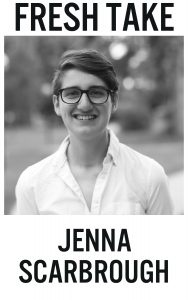 After 125 years of striving for a greener community, the Concordia administration has finally determined the best way for students to address sustainability on campus: plagiarism. Students are now encouraged to plagiarize all forms of homework – from papers to PowerPoints, and everything in between – in order to cut down on the amount of fresh ideas created.
After 125 years of striving for a greener community, the Concordia administration has finally determined the best way for students to address sustainability on campus: plagiarism. Students are now encouraged to plagiarize all forms of homework – from papers to PowerPoints, and everything in between – in order to cut down on the amount of fresh ideas created.
Grete Oanes, co-president of the student environmental alliance, says she has been practicing this lifestyle for years.
“This is truly the best way for Cobbers to reduce, reuse and recycle,” Oanes said. “We reduce the new ideas, and then reuse and recycle the old.”
Plagiarism, as defined in probably most English dictionaries but not one you need to know the name of right now, is the concept of stealing an idea or work and claiming it as one’s own without giving proper credit. Sometimes, this means copying and pasting that article about your favorite Pokémon character directly from Wikipedia. Other times, it refers to all those days that one girl in the back of your class quotes Beyoncé in her senior capstone papers and doesn’t give due credit.
“’We’re smart enough to make these millions,’” that girl said, but definitely not quoting the singer. “‘[We’re] strong enough to bear the children, then get back to business’ and copy others’ ideas.”
Concordia College President William Craft has backed the idea of plagiarism since he first heard it in May and has already been claiming it as his own.
“The best way to become responsibly engaged in the world is to fully support the ideas that already exist,” Craft said. “Why come up with new material and waste that mental capacity, when you can just use other people’s work to your advantage?”
Craft says he had never considered plagiarism as an effective way to become more sustainable until the Student Environmental Alliance proposed the idea to him. “Plagiarism is truly a gift,” Craft said. “It’s like a present that you don’t pay for, and nobody knows who it’s from, so you can never return it to the proper owner.”
This is just the first step of Concordia’s new five-phase sustainability plan. The college also recommends students and faculty adopt these other practices to become more sustainable:
-Abolish all toilet paper on campus. Instead, Kernel Cobb handkerchiefs, made out of recycled cornhusks, will be available for purchase.
-All lights in the classroom will be shut off during the day to save on electricity. Candles are still banned, however, so students will have to sit in the dark. On the bright side, now that plagiarism is allowed, there is no longer a reason for students to be able to see the textbooks in front of their eyes, so it doesn’t even really matter.
-In fact, these old textbooks can still come in handy. Instead of reselling them at the bookstore for future students to reuse, all books can be thrown in the secret furnace in the tunnels beneath campus. Nothing heats an academic institution better than thousands of years’ worth of knowledge going up in flames.
-Finally, Bruce Vieweg, Concordia’s associate vice president and chief information officer, has agreed to cut back on the number of emails sent out every week in order to reduce the “intrusion to your day.”
This plan, created by someone or some organization that does not deserve its due credit, has already been implemented for the new academic year.

